As Millennials, We Grew Up Without Hope — 'Boomers Have Never Done Right By Us And The American Dream Was A Scam'
Children of the 80s and 90s grew up after the promise of the American Dream had already flown away.
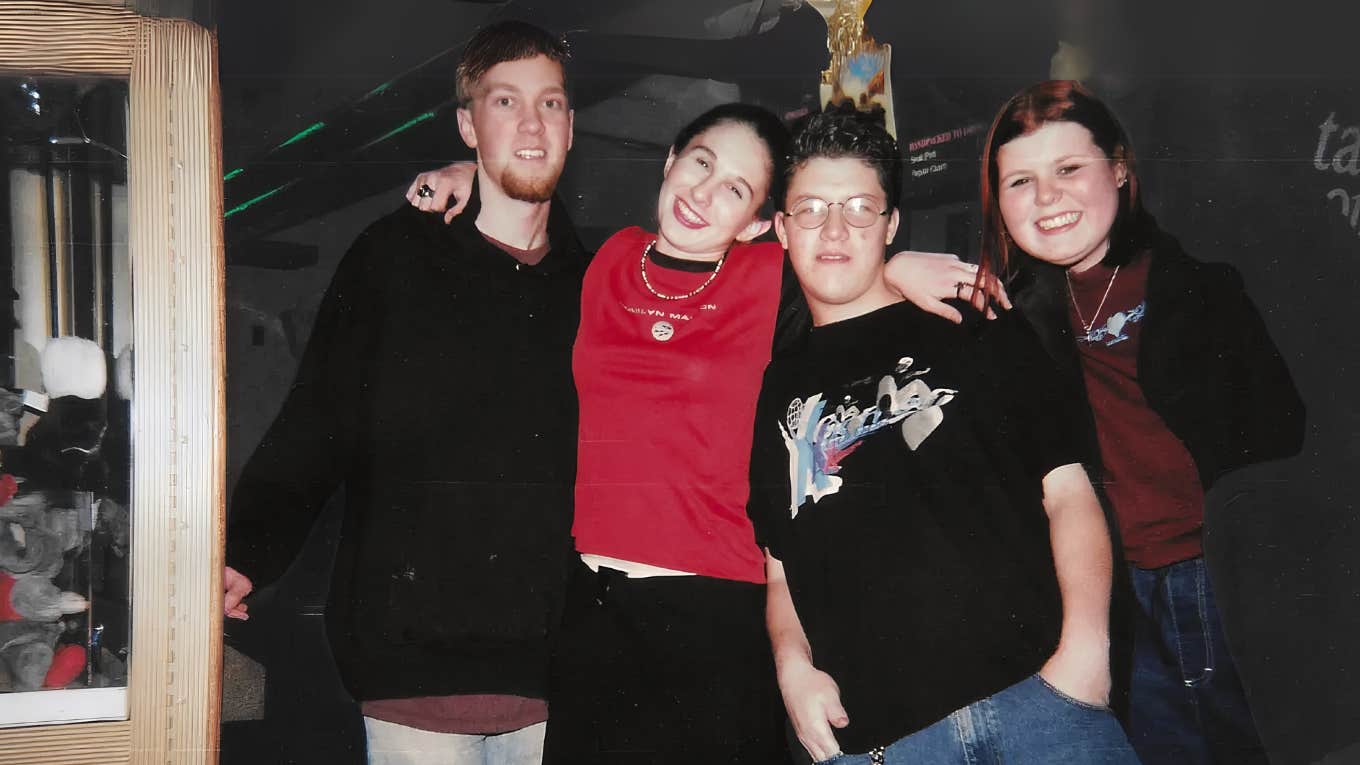 Courtesy Of Author
Courtesy Of Author The Columbine shooters were the same age as me. Maybe that in itself is enough to sum up how teens felt, coming of age in the 90s with no sense of purpose in sight. Millennials grew up feeling lost.
In 1982, the year I was born, Wikipedia says:
The early 1980s recession was a severe economic recession that affected much of the world between approximately the start of 1980 and 1982. It is widely considered to have been the most severe recession since World War II until the 2007–2008 financial crisis.
I was born into a recession, then, I bought my first house in 2006 right before another recession.
Millennials haven’t had the same shot at being financially successful in the same ways that older generations could do so.
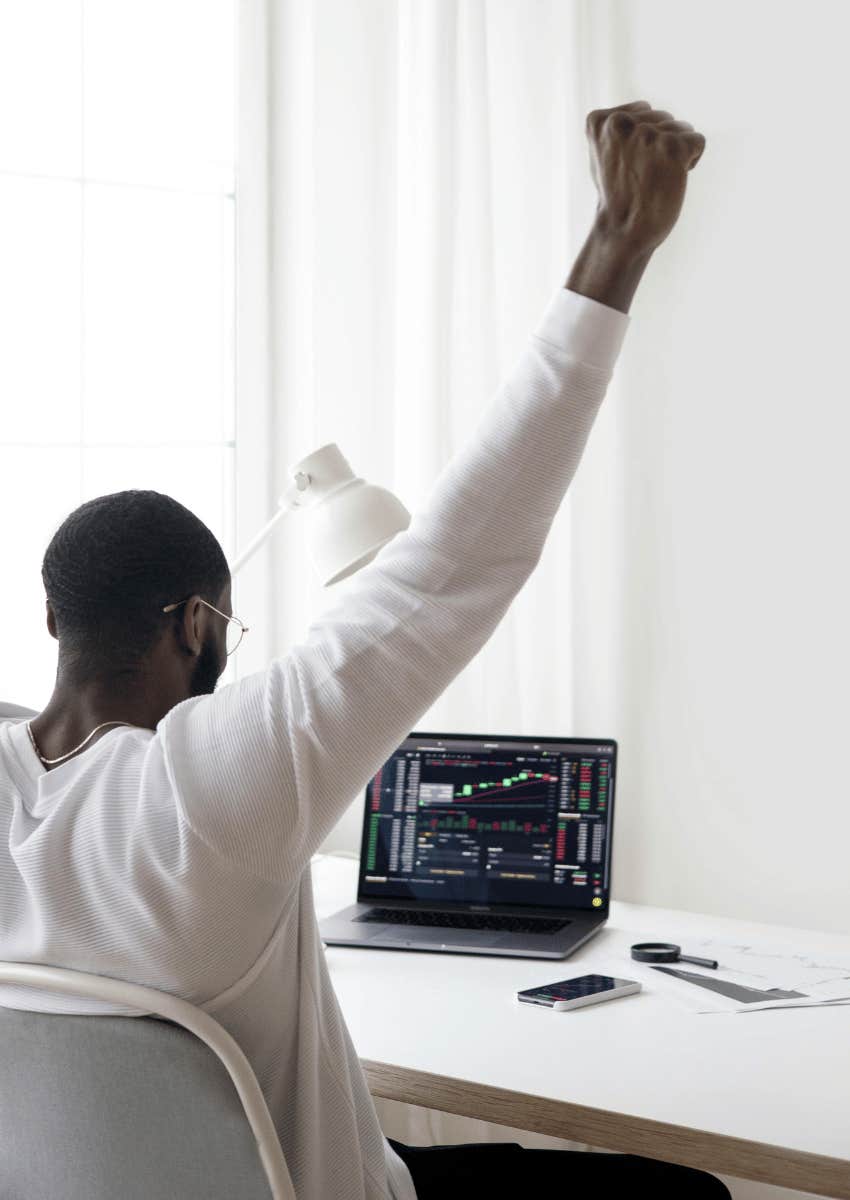 Anna Nekrashevich | Pexels
Anna Nekrashevich | Pexels
Even as a kid, I knew that we were poor. We only got new clothes once or twice a year, if my grandpa came into town to visit and took us to the mall. Those new clothes were something that I always looked forward to as a kid.
I remember hearing my mom’s family talk at gatherings when they thought the kids weren’t listening. I knew that my mom’s well-off family looked down on us as the ‘poor relatives’ because my dad had a blue-collar job. Still, he worked his butt off with overtime to make sure that we were taken care of and had some nice things.
For more on what it was like to be a poor kid in the 80s, this article captures some of the experience. As children of the ’80s and ’90s, we grew up with a culture that demanded us to always work harder, be better, and strive for more … only to find instead a cold reality of living with poverty, hopelessness, and drug addiction that went in an endless downward spiral.
The movie Fight Club, which came out in 1999 sums it up neatly:
“We’re the middle children of history, man. No purpose or place. We have no Great War. No Great Depression. Our Great War’s a spiritual war… our Great Depression is our lives. We’ve all been raised on television to believe that one day we’d all be millionaires, movie gods, and rock stars. But we won’t. And we’re slowly learning that fact. And we’re very, very p*ssed off.” ― Chuck Palahniuk,
When you spend your childhood being taught that if you work hard enough you can achieve anything, only to realize when you are thrown out into the world for the first time that you can’t, it creates a sense of disillusionment and loss.
 Keira Burton | Pexels
Keira Burton | Pexels
We are a generation of kids that grew up watching re-runs of shows like Leave it to Beaver, where mom stayed home and kept the house in her perfect apron. But in comparison, in our own lives, we were left home alone as latchkey kids. From 1996 research on latchkey children:
Children who are regularly left without adult supervision during a significant portion of the day, referred to as ‘latchkey children’, are a growing social phenomenon. The main reason for the rising prevalence of latchkey children is the increase in dual-income and single-parent families. Studies on the effects of the latchkey phenomenon report conflicting results. The potential positive consequences include learning to be independent and responsible. The potential negative consequences include loneliness, boredom, fear, academic underachievement, drug and alcohol abuse, accidental injury, and impairment of the parent-child relationship.
A lot of us were left home alone in the 80’s and 90’s. We had to fend for ourselves after school, many of us responsible for younger siblings. I started babysitting my sister when I was in the 5th grade, so 10–11 years old. There began my transition into adulthood.
In the 6th grade, I saw friends of mine smoking pot for the first time. I was dropped off early for school, and a few of us walked over to a friend’s apartment across the street from the school. A bunch of them were getting high before school.
Seeing that freaked me out, and I left. That was probably the moment that I officially became ‘unpopular.’ But drugs scared me. I said no for a few more years, before finally saying yes to drugs as a runaway when I was 16.
I felt thrown away. No one wanted me or cared about me. So why not throw my life away too with drug use? When nothing matters, it doesn’t matter what you do.
“This was freedom. Losing all hope was freedom.” ― Chuck Palahniuk
In high school, one of my girlfriends told people that either I or my then-boyfriend would probably die before we hit the age of 20. That’s who we were then. Hopeless, floundering. Taking the path of least resistance into the downward spiral seemed like the only way to go at the time.
I was in the 11th grade when the Columbine shooting happened, the same age as the shooters.
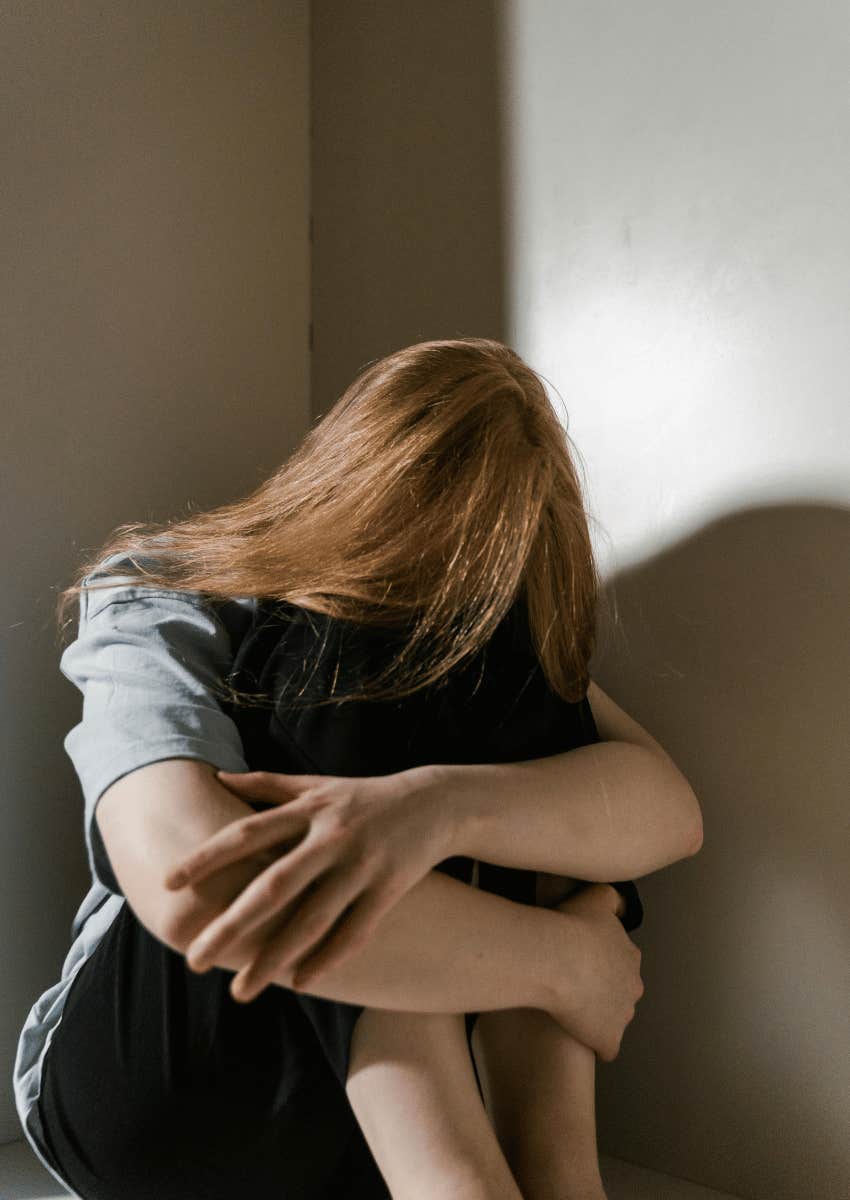 MART PRODUCTION | Pexels
MART PRODUCTION | Pexels
I remember the day of the shootings clearly, albeit differently than most people who were watching the events of the day unfold on TV. My own Northglenn High School was only 24 miles away, in another suburb, on the other side of Denver. That same year, our school had at least three different bomb threats called in. During one of them, the police found a duffel bag full of knives in some kid’s locker. I remember a TV commentator at the time saying about the shooters: They weren’t any different from anyone else.
That’s what family, friends, and neighbors remember. Just kids, like any other kids at the time. Then in the aftermath, they all started to place blame for the shooters being the way they were. Some blamed violent video games that they played, others blamed the music they listened to.
We listened to Marilyn Manson too. In a 2017 interview with The Guardian, the interviewer says, "It’s easy to forget how much controversy Manson managed to cause in the late 90s when his name was linked to the 1999 massacre at Columbine High School in Colorado, whose perpetrators were alleged — erroneously as it turned out — to have been fans."
We listened to angry music because we were angry about life. We all had reasons. Trouble at home that no one cared about. A friend at school was shot during our freshman year. Trouble in our relationships both romantic and with friends. Loneliness. Feeling outcast. You name it, we all felt it back then.
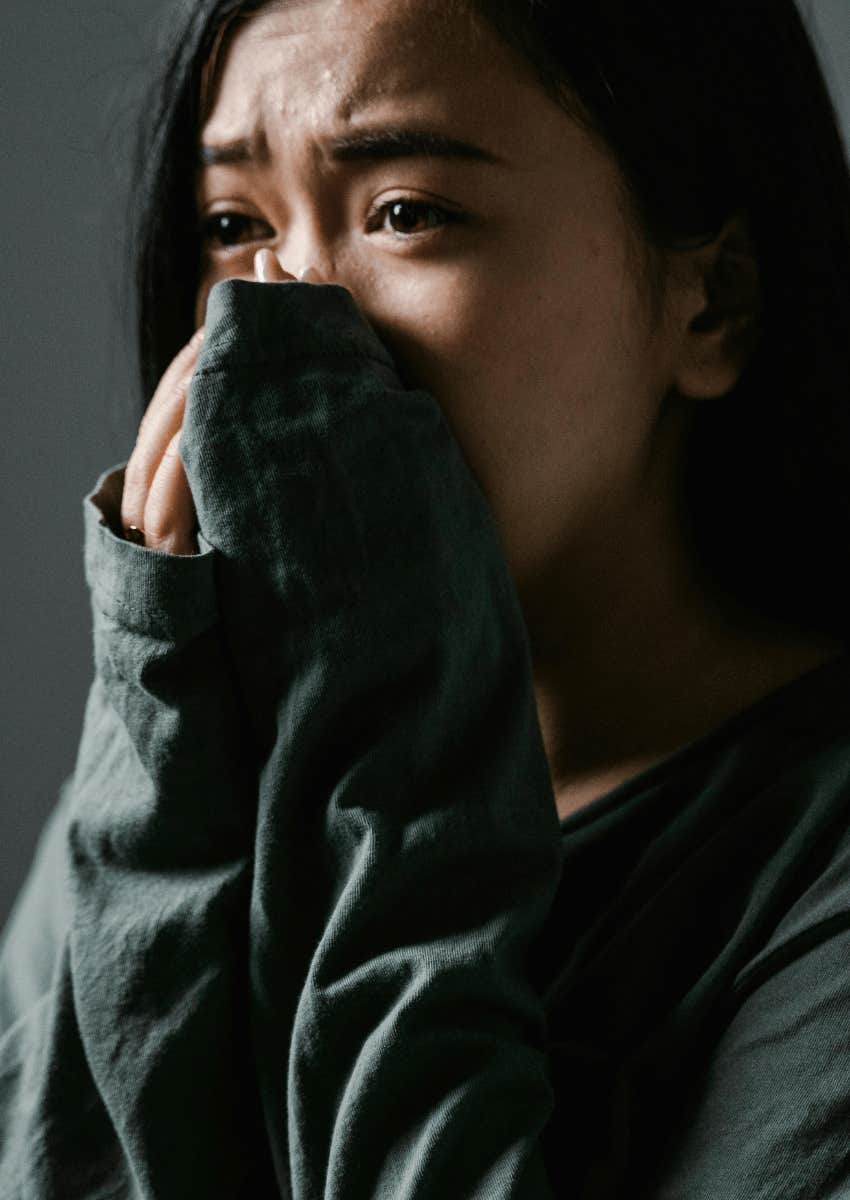 MART PRODUCTION | Pexels
MART PRODUCTION | Pexels
That April day in 1999, three of my friends and I decided to run away from home, away from Colorado. We had bought a car out of the newspaper for $200 that was barely drivable and were on our way.
The car, predictably, broke down on the side of the highway. This was after the floor in the back seat of the car had inexplicably caught fire the night before. But we kept on keeping on until we couldn’t.
We got picked up by a stranger driving by who decided to help us, though even now the reason why is unclear. The guy had our car towed to a shop to get a quote on repairs, took us into his house for a few days, fed us, and let us watch every Star Wars movie with him while crashing at his place.
After a couple of days, though, he was sick of us and wanted us to move on. So, I called a friend whose parents had money back in Denver and asked him to Western Union us some money. He didn’t. He called the police.
We got picked up by the police, taken into custody, and had to sit in the police station while they figured out what to do with us. Finding out what day we had left, that we were from Colorado, and all owned black trench coats, we were questioned about the Columbine shooting to see if we had been involved somehow.
Of course, we had nothing to do with it, though two of my girlfriends went to Kennedy High School, which is only six miles away from Columbine. We had driven past there that day, too, and seen all the police cars. In a now-chilling statement, one of my friends said that all the police activity meant no one would be looking for us as runaways. Scary, scary, scary. Kids, the same age as I was then, were the first notorious school shooters.
The millennial generation was the beginning of an evil that scars our nation. Hopeless, forgotten, thrown away, full of rage, just like everyone else.
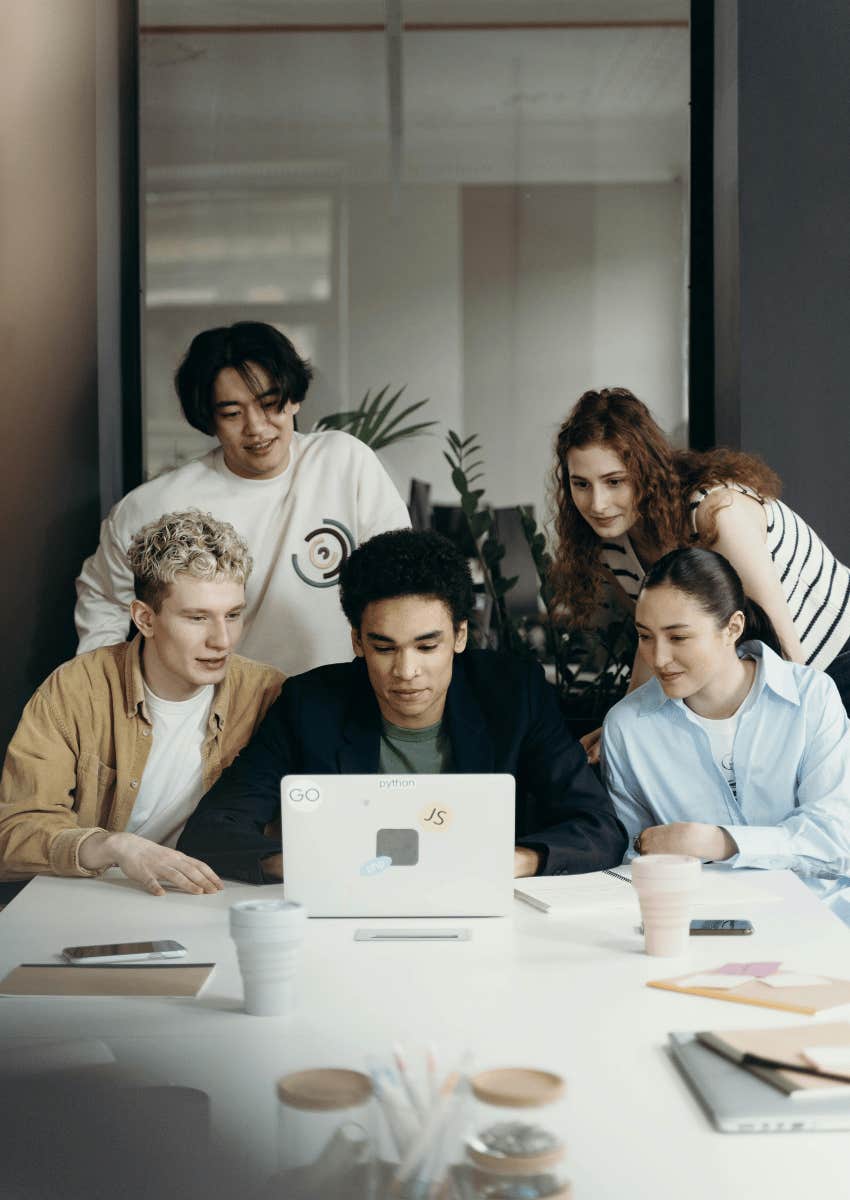 cottonbro studio | Pexels
cottonbro studio | Pexels
They turned their pain outward in a desire for revenge against those who had hurt them. But was our running away any different? Revenge against the parents who made us feel unwelcome in their homes.
Was it any different than the self-harming behaviors I turned to? I was trying to fill a void inside me that I never knew where it came from. A hunger and yearning for purpose, for belonging, for love that had always been withheld.
They say, hurt people hurt people. But how do we heal the scars in our own psyches that cause us to lash out? Much less heal this broken world we have inherited.
As one of the oldest Millennials, I am in my 40s now. We aren’t kids anymore. Many of us — like me — have kids who are themselves adults now. But how do we grow from a generation of kids left to fend for themselves, teens thrown away, to reclaim our wasted lives and make something better?
According to a 2009 John Mayer song:
Me and all my friends
We’re all misunderstood
They say we stand for nothing and
There’s no way we ever could
Now we see everything that’s going wrong
With the world and those who lead it
We just feel like we don’t have the means
To rise above and beat it
So we keep waiting (waiting)
Waiting on the world to change
We keep on waiting (waiting)
Waiting on the world to change
I have honestly hated this song. First of all, the music sounds too happy and upbeat. Second, why do we need to wait for the world to change, when we should be the ones out there making the world change?
It’s time for millennials to take our power back and stop hopelessly acquiescing to what the older generations told us to do.
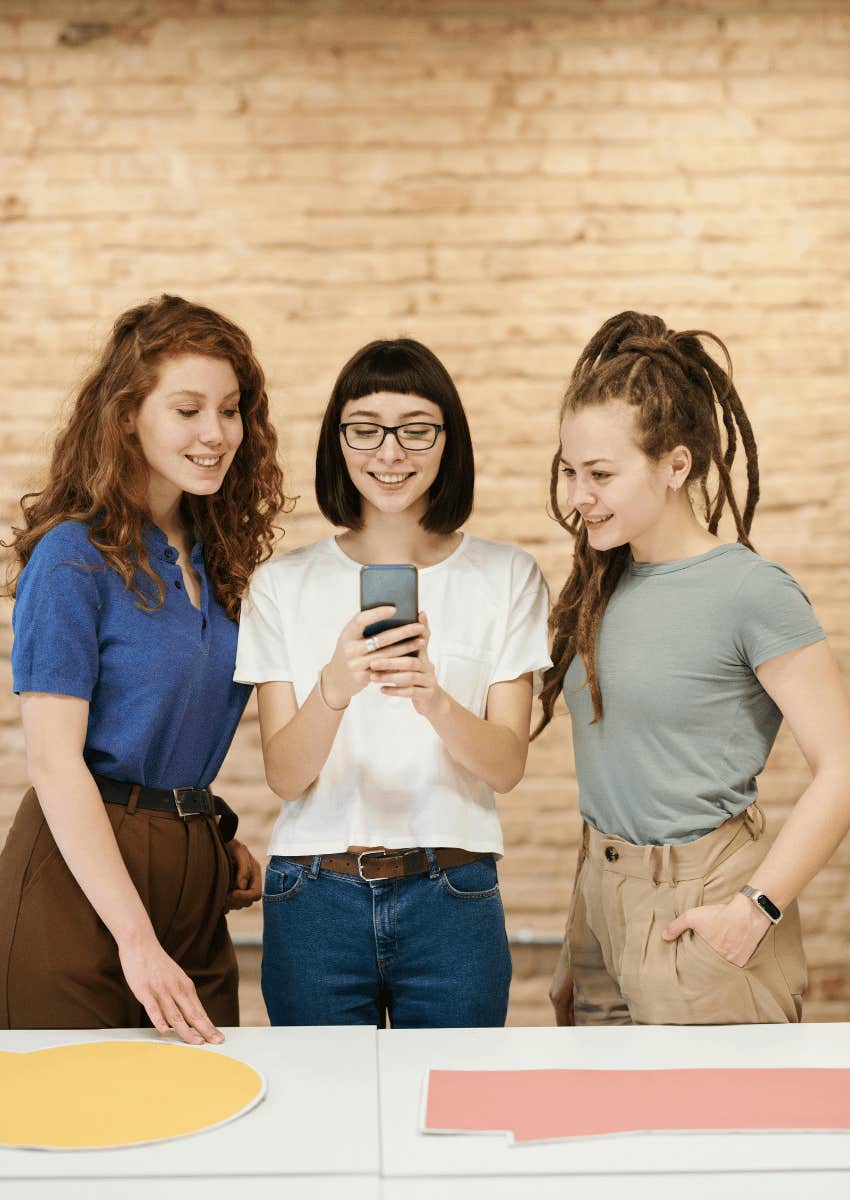 fauxels | Pexels
fauxels | Pexels
The older generations didn’t grow up the way we did. They had moms at home like June Cleaver. They could buy a house with one income earner working a minimum wage job. The advice they give us is a joke. It comes from a different time, a different life, a different America that none of us ever knew. According to statistics from the Pew Research Center:
As of November 2016, an estimated 62 million Millennials (adults ages 20 to 35 in 2016) were voting-age U.S. citizens, surpassing the 57 million Generation X members (ages 36 to 51) in the nation’s electorate and moving closer in number to the 70 million Baby Boomers (ages 52 to 70), according to a new Pew Research Center analysis of U.S. Census Bureau data. Millennials comprised 27% of the voting-eligible population in 2016, while Boomers made up 31%.
Millennials are adults now. We are voters now. It’s time for us to do something about the hopeless world we have inherited and throw out the antiquated thinking that got us into this mess in the first place.
The Boomers have never done right by us — as parents or political leaders — and it’s time for us to take them out of power. In 2020, Pete Buttigieg ran in the primaries as a presidential candidate. I voted for ‘Mayor Pete’ in the primary. The guy is awesome. And he was born in ’82, just like me. I hope that, in the future, ‘Mayor Pete’ will run again. We need young voices in politics.
Whenever I think back to the ’90s, I think of the song Anthem for the Year 2000 by Silverchair:
We are the youth, we’ll take your fascism away
We are the youth, apologize for another day
We are the youth and politicians are so sure
We are the youth and we are knocking on death’s door
Never knew we were living in a world
With a mind that could be so sure
Never knew we were living in a world
With a mind that could be so small
Never knew we were living in a world
And the world is an open court
Maybe we don’t wanna live in a world
Where our innocence is so short
We’ll make it up to you in the year 2000
Maybe all of us 80’s and 90’s kids grew up without hope, without purpose, without direction…. without so much more. But here’s the thing. We are grown up now. We don’t have to keep ceding power to the parents who screwed over our lives.
It’s time for millennials to take charge because we deserve more than the world we have been given.
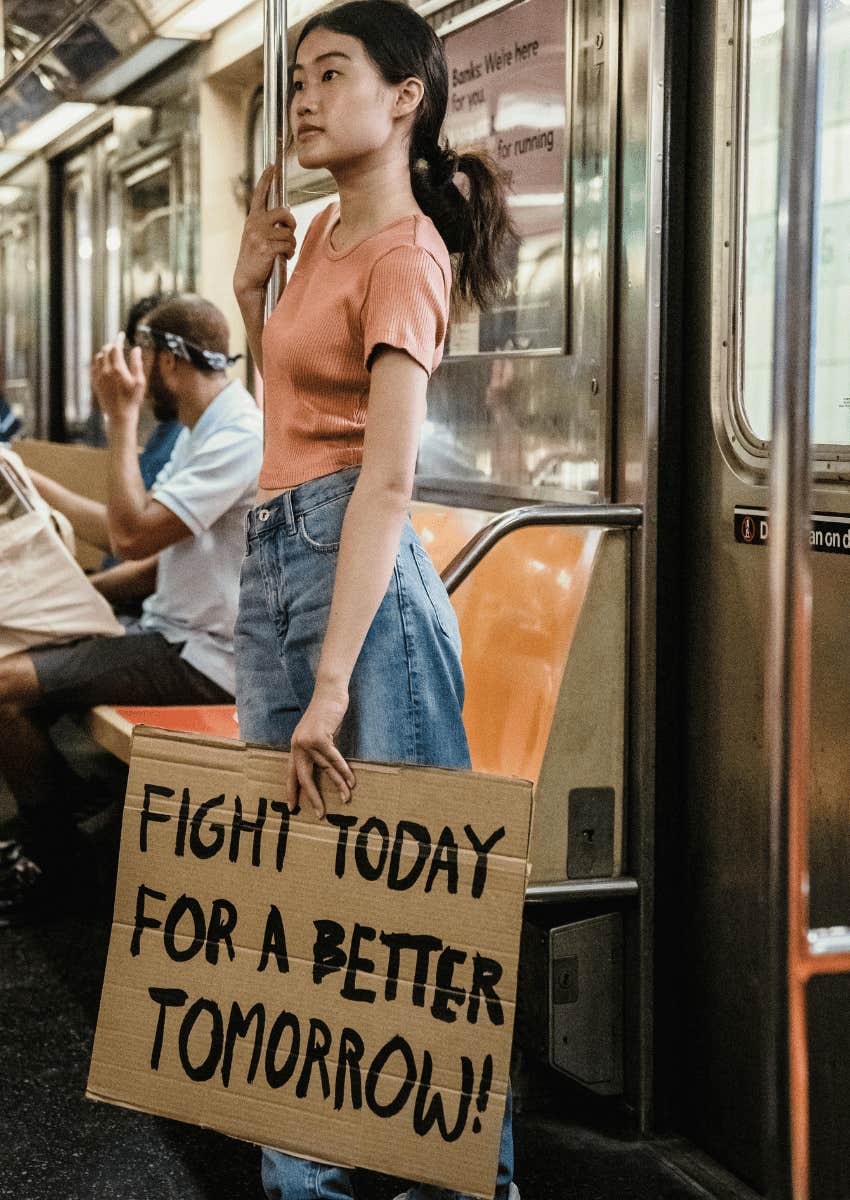 Lara Jameson | Pexels
Lara Jameson | Pexels
To all my fellow Millennials, I will leave you with one last thought:
Sure, we were probably screwed-up teenagers. But we aren’t teenagers anymore. And we don’t have to keep being screwed up.
You don’t have to run away from home to evade your parents anymore. And for the love of god please don’t kill them. Right now, in this moment, the power is yours. You are allowed to walk away from anything that isn’t serving you.
This includes relationships with family that feel forced and a larger relationship with a power structure in Government that isn’t serving our needs either. Sure, you are probably depressed, hopeless, and on a bunch of psych meds. Statistics say that 1 in 5 of us are. But we don’t have to stay that way.
No matter how many times you have been kicked down into the mud by the older generation, it doesn’t mean you have to stay there. The mud isn’t where you belong. I think Washington is. Let’s start a revolution.
Nicole Dake is a blogger, author, and life coach. Nicole blogs about parenting with a focus on mental health, self-improvement, and spirituality.

